
‘When I first came out, there was no internet, mobile phone, or knowledge available. I didn’t know much about myself,’ Bobbi Pickard, 55, tells Metro.
Instead, she recalls, it was a childhood filled with isolation and fear. ‘I knew I was trans from the age of three, and I wanted to be me,’ says Bobbi.
Living openly was simply unthinkable. ‘There weren’t any trans people coming out in my generation,’ she adds.
Bobbi has managed to survive decades in a world that has forced her to live in the shadows. By today’s standards, it’s not a huge milestone – but for transgender women, it’s an age some don’t reach.
Research shows that transgender people face higher rates of mental health struggles, which is known as a risk factor for suicide, a 2022 Samaritans report said.
Long NHS wait times for gender-affirming care add to the distress, while hate crimes and violence against trans people continue to rise.
Having spent a lifetime advocating for transgender visibility, Bobbi says her journey of coming out has been ‘constant’. It began with telling a select group of people in 1991, then medically transitioning over two decades later in 2015 before coming out in the workplace.
She now works as a Diversity Equity and Inclusion professional and is CEO of Trans in the City, a not-for-profit organisation that works to increase inclusion for trans and non-binary people in business.
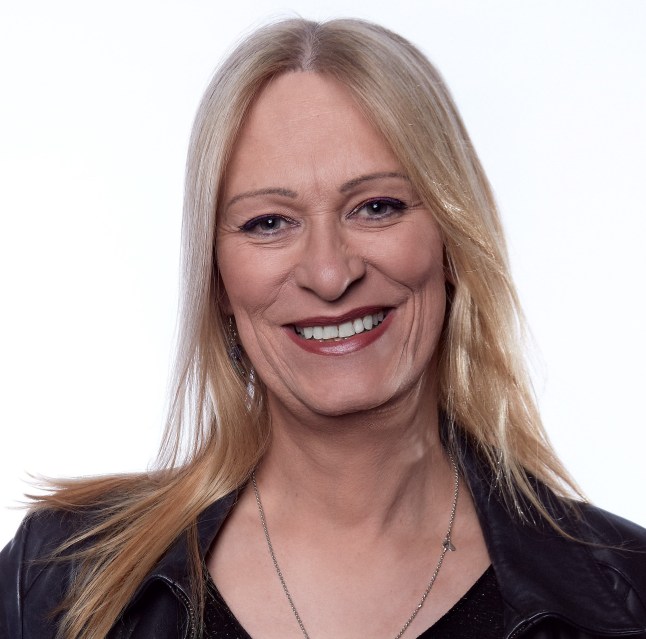
‘I felt my life had no future to it’
69-year-old Stephen Whittle, from Altrincham, tells Metro that he faced similar setbacks and has dedicated much of his life to advocating for trans and women’s rights and was made an OBE in 2005 for his body of work.
He joined the Manchester TV/TS group in 1975, the first support group of transgender people in the UK, and by 1989, had founded the UK’s FTM Network and founded Press for Change, a group that works to change the laws and social attitudes surrounding transgender lives and has shared extensively about his journey.
Born into a working-class family and suffering from rickets as a child, Stephen was never expected to live past six months. He describes himself as a ‘natural survivor’, particularly through his journey as a transgender man.
Now a professor of equalities law at Manchester Metropolitan University, Stephen says that he first began questioning his gender identity in school. ‘I was 10, and we had these boys and girls races in school and I had a sudden, massive realisation that I was always going to be in the wrong race,’ he recalls.
‘I remember sitting there, balling my eyes out and I just knew that my life had no future to it at all.’
In 1975, Stephen confided in a sympathetic GP, who referred him to a psychiatrist. However, they disregarded his identity and had him thrown out of the hospital. Stephen recalls the psychiatrist told him: ‘I will never treat you. I will never provide you with hormone therapy and you will never be able to live as a man.’
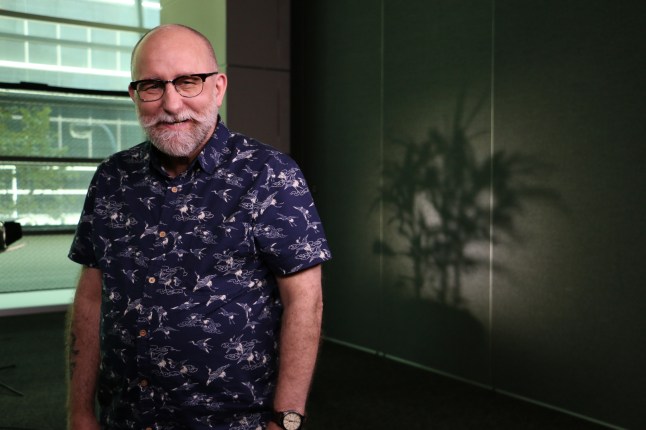
After receiving the devastating news, Stephen says: ‘I set off home to go kill myself. My GP was sat on my doorstep and she said, “I don’t know how to do this, you probably know more than me, but we’ll do this together”.’
Stephen’s doctor provided him with the hormones he needed, and shortly after, he met his partner Sarah, who he describes as his ‘best friend’ and ‘biggest advocate’. The pair married in 2005 and have four children together.
While Stephen found community in the LGBT scene and women’s rights groups in the 70s and 80s, he recalls the lack of rights for transgender people.
‘We could be thrown out of a shop, we could be evicted by landlords. We could be instantly sacked from jobs. And I was repeatedly sacked from jobs. We had absolutely no rights,’ he says.
The trans landscape today
For today’s trans youth, the landscape has shifted dramatically. Unlike the previous generation, they have grown up in a world with resources, community, and the language to express their identities.
Tate Smith, for example, realised he was trans at age 16. ‘I grew up with two very alpha male figures in my life, my father and stepfather, and for the most part, I didn’t realise I was trans,’ he tells Metro.
Attending school in Brentwood, Essex, he explains: ‘You’ve got to fit in and look a certain way. Even if I was aware of being trans, I don’t think I would have acted on it.’
It wasn’t until Tate found represention in celebrities, such as Laverne Cox, who made history as the first openly transgender person on the cover of Time Magazine in 2014, that he started to discover who he was.

Researching ‘female to male transgender’ online, he says: ‘I stumbled across a YouTube video of this transgender Canadian guy, and I thought f***** hell, that’s what I’ve been looking for.’
However, Tate’s journey was not without challenges. ‘My parents did not approve so I had to go back into the closet,’ he remembers.
Within a year, Tate had moved out of home and felt ‘ready to transition’. ‘I started testosterone in April 2019. It was the best day of my life.’ Then, in 2020 he privately funded his top surgery. ‘I’m still on the NHS waitlist,’ he explains. ‘I’ve been on it since October 2018.’
Living openly still comes with difficulties though. ‘I faced a lot of workplace discrimination, people outing me without my consent, and really inappropriate comments from colleague,’ he explains.
Sadly, a reality all to familiar for transgender people. A 2021 survey found 65% of transgender employees hide their identity at work, due to fear of discrimination.
Despite this, Tate has built a London-based career in consulting and public speaking, advising workplaces on inclusivity.
‘Coming out was pretty straightforward’
Samsara Sylvester is a 22-year-old transgender woman who represents another example of transgender youth able to live more freely.
She began fully living as a female in 2018 while attending an international school in Hong Kong. For the most part, she describes her coming out story as straightforward.
‘I just showed up in a girls uniform and just announced to my parents: “I’m going to be a chick now” and they were like ‘really?”,’ she tells Metro.
Coming from a family with three other daughters, Samsara says her dad, who had always hoped for a son, ‘found it difficult to navigate at first’. However, she describes her family as ‘supportive’.
But even though her parents were accepting, not everyone was. ‘There were so many parents that would write into the school. It was a paid school, and they [the school] were worried investors might pull out,’ she remembers. ‘So many people that didn’t know me had so much to say about it.’
Samsara eventually moved to London to study at King’s College, and describes it as ‘one of the greatest cities in the world’ for being trans.

Although the experiences of transgender people have differed across generations, many younger trans individuals express a sense of gratitude and respect towards their elders.
‘Without them fighting on the front line, we wouldn’t be here,’ Samsara says, while Tate claims: ‘They’ve paved the way for us. I couldn’t be as open as I am without the trailblazers who have come before me.’
Being trans in an social media-obsessed world
However, visibility is both a blessing and a burden. While the growing representation, online and media recognition and push for equality have helped many embrace their identities, this progress also comes with increased exposure, hostility and opposition.
As of March 2023, in the UK, 4,732 hate crimes against transgender people were recorded – a rise of 11% since the previous year. The Home Office report found this stark with a drop in racist and homophobic hate crimes.
A 2022 YouGov poll found that there has been an ‘erosion in support of trans rights since 2018’, and since the brutal murder of the 16-year-old schoolgirl Brianna Ghey, many transgender people have not felt safe in the UK.
With this rise in hate, Tate worries about the younger generation and those still exploring their identities.
‘What’s it going to be like for a kid who has the language but sees the violent statistics, hate crime and how society speaks to them?’ he asks.

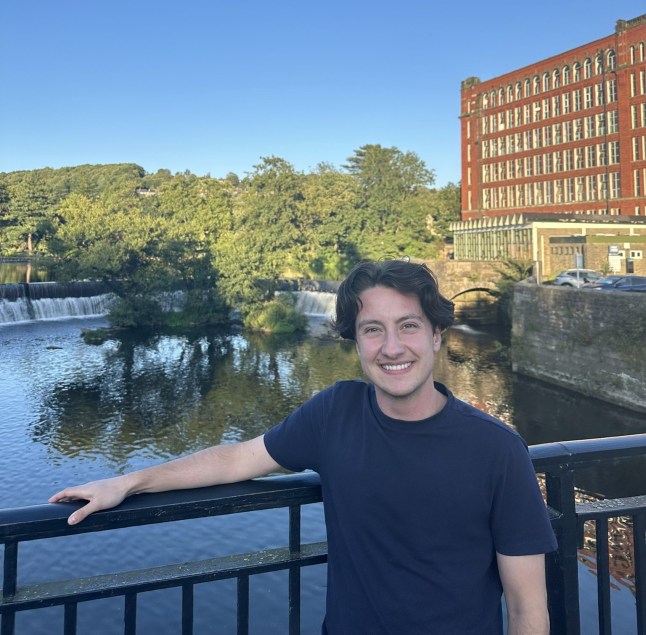
‘A lot of children go back in the closet or their family members don’t know how to deal with them.’
Tate and Samsara are both all too familiar with the animosity that can flood their social media accounts. Tate’s Instagram, with a following of 6,600, and Samsara’s TikTok, which has 12,000 followers, often attract hateful comments.
Although Samsara tries to brush it off and uses it as ‘motivation’, she admits that some comments can leave her unsettled, especially when it comes from someone seemingly ‘young’ or progressive’.
‘Transophia looks the same across every generation,’ she adds.
Tate, too, has faced hurtful comments and mostly tries to ignore them. He says: ‘I’ve got a life outside of social media, and these people don’t know who I am. I just look at everything and think “Bot”. If I do see it’s a real person I will engage with them and correct them.’
A vital community
While Bobbi says that the internet has helped her find community and others who understood her experience, Stephen describes social media as ‘poisonous’. Speaking about the nastiness, deadnaming, and hatred he’s received over X, he says: ‘I think it’s a really unhealthy place to be.’
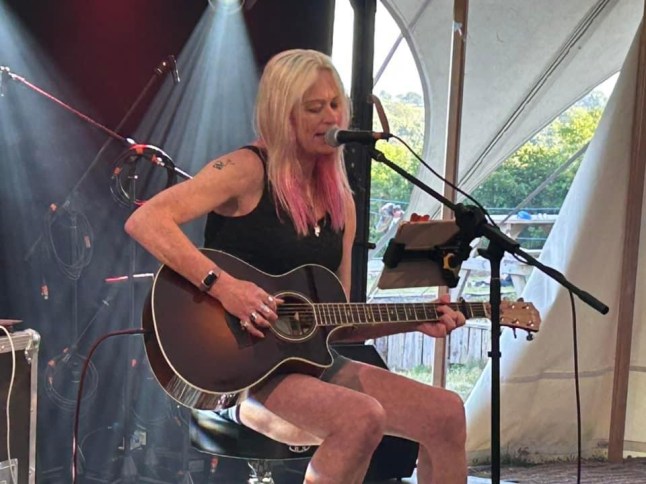
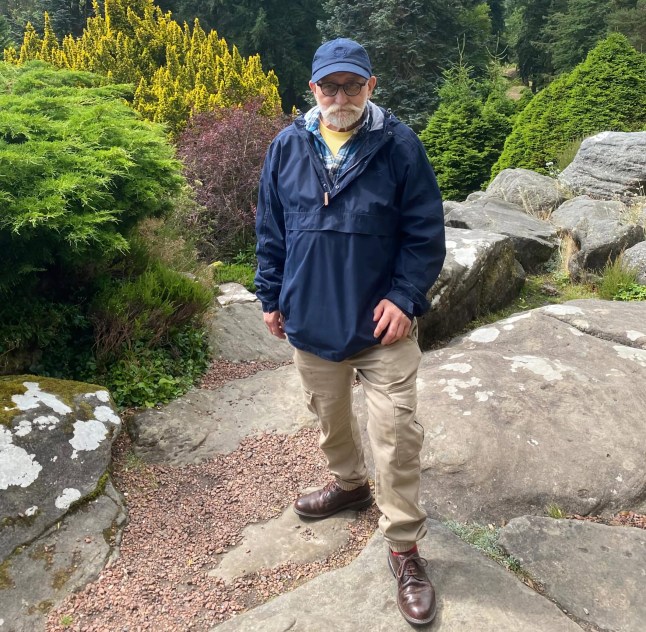
He believes that trans youth could benefit from more in-person spaces, which he found essential.
‘I don’t think I’d have survived without the support from the LGBT community,’ he says. ‘[Young people] face a really challenging environment because so much of it is online. We don’t have that many social groups in many areas and it’s something that needs to be rectified.’
Though trans people continue to face challenges and adversity, Stephen and Bobbi both emphasise the importance of keeping hope alive, as they ‘didn’t have any,’ says Stephen.
More Trending
Meanwhile, Bobbi hopes for a bright future for transgender youth. ‘I’d love to think that anything my organisation and activist friends are doing creates a foundation for young trans and non-binary people to go and change the bloody world and make it a better place after I’m not here.’
Tate feels this sense of optimism, especially when he sees people younger than he is embracing their identities.
‘I’ve got so much hope for what the younger generation is going to do,’ he says. ‘They’ll be the leaders of the future and they’ll just change everything. I’m so excited about it.’
Transgender Awareness Week takes place between 13-19 November.
Do you have a story to share?
Get in touch by emailing MetroLifestyleTeam@Metro.co.uk.
Get the rest you deserve
MORE: I never really knew my dad, then I got the call he died
MORE: My dad was found on train tracks after being denied the death he wanted
MORE: Girl, 14, killed herself after online hate campaign which coroner called ‘banter’














